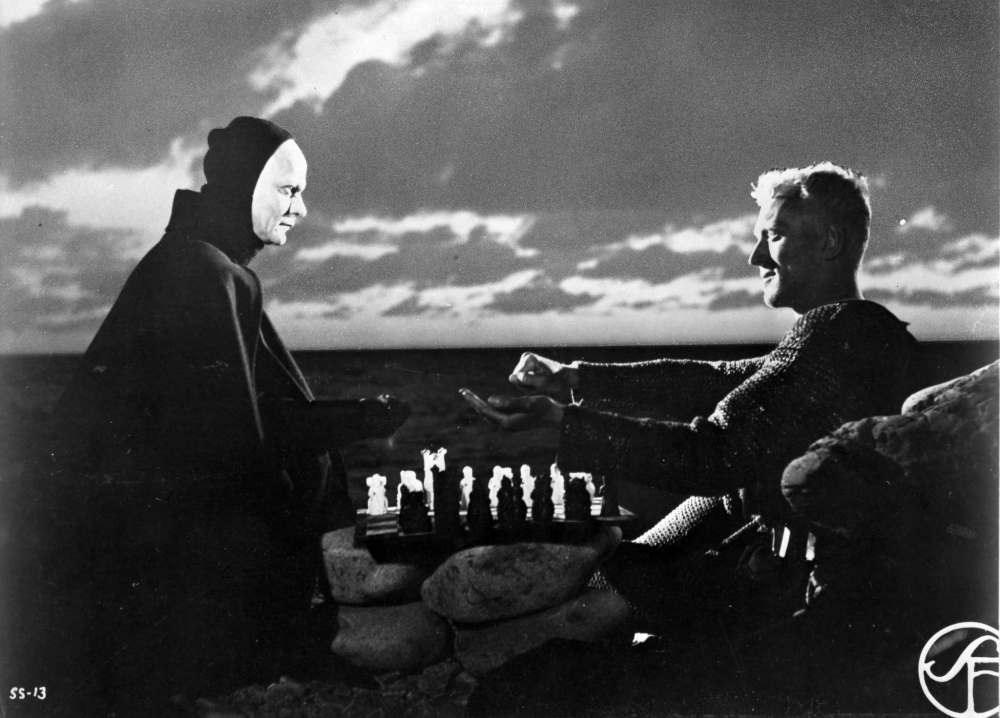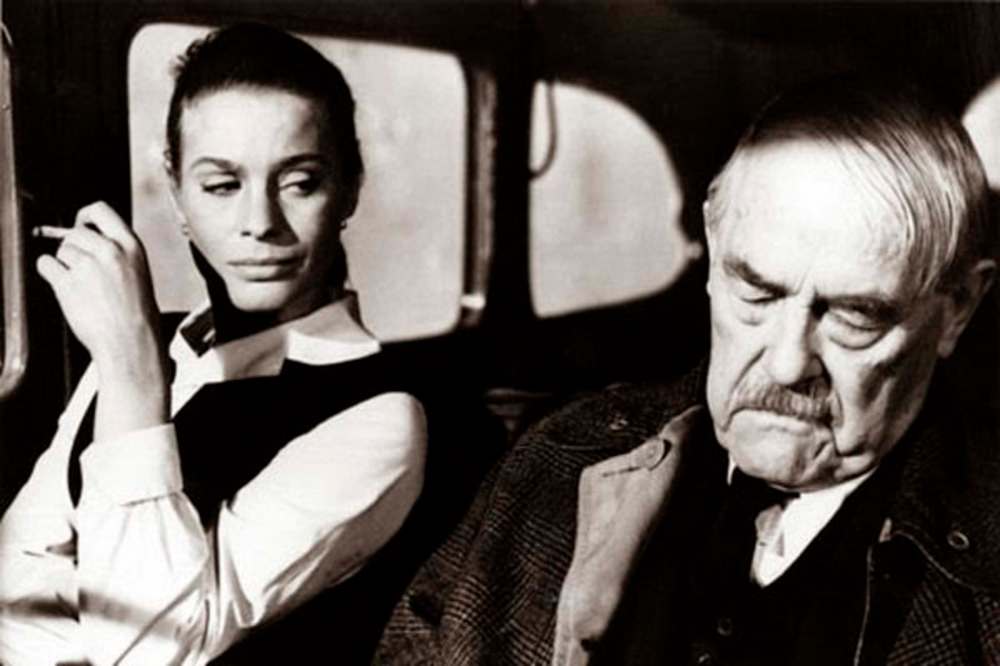Autumn the right time to fall into Bergman classics
Month-long program at Cinematheque marks 100th anniversary of Swedish filmmaker's birth
Advertisement
Read this article for free:
or
Already have an account? Log in here »
To continue reading, please subscribe:
Monthly Digital Subscription
$0 for the first 4 weeks*
- Enjoy unlimited reading on winnipegfreepress.com
- Read the E-Edition, our digital replica newspaper
- Access News Break, our award-winning app
- Play interactive puzzles
*No charge for 4 weeks then price increases to the regular rate of $19.00 plus GST every four weeks. Offer available to new and qualified returning subscribers only. Cancel any time.
Monthly Digital Subscription
$4.75/week*
- Enjoy unlimited reading on winnipegfreepress.com
- Read the E-Edition, our digital replica newspaper
- Access News Break, our award-winning app
- Play interactive puzzles
*Billed as $19 plus GST every four weeks. Cancel any time.
To continue reading, please subscribe:
Add Free Press access to your Brandon Sun subscription for only an additional
$1 for the first 4 weeks*
*Your next subscription payment will increase by $1.00 and you will be charged $16.99 plus GST for four weeks. After four weeks, your payment will increase to $23.99 plus GST every four weeks.
Read unlimited articles for free today:
or
Already have an account? Log in here »
Hey there, time traveller!
This article was published 27/09/2018 (2599 days ago), so information in it may no longer be current.
ThE timing is perfect.
It’s not just that 2018 is the centenary of Swedish filmmaker Ingmar Bergman. But autumn happens to be the best time of year to see Bergman’s early-to-mid-career films, when the skies grow more wintry and the desaturation of colour outside syncs with Bergman’s spare, sometimes bleak visual style in the cinema.
Bergman was born in 1918 in Uppsala, Sweden, the son of a strict Lutheran pastor who would, on occasion, sentence young Ingmar to a dark closet for hours at a time as punishment for minor infractions. That kind of upbringing not only helped induce a rebellious streak, it left a stamp on Bergman’s films, in which his heroes tend to have a fractious relationship to God and faith.

Bergman also distinguished himself with his films that delved deeply into female characters, more often than not portrayed in his middle period by Liv Ullmann, his muse, romantic partner and the mother of his child.
The month-long program of Bergman’s work at Cinematheque, newly restored in digital format, was curated by Rory Runnels and includes:
The Seventh Seal (1957), Friday, Sept. 28, to Saturday, Oct 6.
Bergman’s screen proxy of choice, Max von Sydow, plays a knight returning from the Crusades, facing the personification of death on a beach and challenging him to a game of chess. Bergman had already been directing films for 12 years (including the 1955 work Smiles of a Summer Night, which would become the basis for the Stephen Sondheim musical A Little Night Music), but this is the film that announced Bergman’s arrival to an international audience.
The Magician (1958), Saturday, Sept. 29.
Von Sydow returns as Dr. Vogler, a 19th-century travelling mesmerist obliged to face off against the eminent scientist Dr. Vergérus (Gunnar Björnstrand) to prove his caravan is not a fraud. The screening will be introduced by Winnipeg actor-director Ross McMillan.
Wild Strawberries (1957), Thursday, Oct. 4, to Sunday, Oct. 7.
On a trip to accept an honorary degree, elderly curmudgeon Dr. Isak Borg (Victor Sjöström), accompanied by his daughter-in-law (Ingrid Thulin), is provoked to remember his own troubled past when he encounters hitchhikers whose lives refract the chapters of his own life. Introduced by Winnipeg writer Karen Clavelle.
The Virgin Spring (1960) Saturday, Oct. 13, to Sunday, Oct. 14.
Winner of the Academy Award for best foreign-language film, Bergman’s tragedy tells the medieval story of the rape and murder of the virginal Karin (Birgitta Pettersson) and her father’s (Von Sydow) brutal pursuit of vengeance. A film of terrible beauty, this inspired Wes Craven’s comparatively scuzzy Last House of the Left.
Persona (1966), Saturday, Oct. 20, to Sunday, Oct. 21.

Ullman is a stage actress who becomes mute after completing a role and Bibi Andersson is the nurse whose caretaking assignment grows into a mysterious bond with her patient. The Saturday screening will be introduced by University of Manitoba film prof George Toles.
Shame (1968), Saturday, Oct. 27. Ullman and von Sydow play a couple whose attempt to remove themselves from a war proves fruitless when the war comes to their remote farm.
Hour of the Wolf (1968), Saturday, Oct. 27.
Again, von Sydow and Ullman are an exiled married couple, whose lives unravel when they are invited by a group of sinister strangers to dinner at a nearby castle.
The Passion of Anna (1969), Sunday, Oct. 28.
Bergman mixes fact and fiction with the story of a reclusive artist (von Sydow) who attempts to rebound after a failed marriage, first with a neighbour (Andersson), and then, tragically, with the mysterious Anna (Ullmann), who has recently lost her own family.
randall.king@freepress.mb.caTwitter: @FreepKing

In a way, Randall King was born into the entertainment beat.
Our newsroom depends on a growing audience of readers to power our journalism. If you are not a paid reader, please consider becoming a subscriber.
Our newsroom depends on its audience of readers to power our journalism. Thank you for your support.


